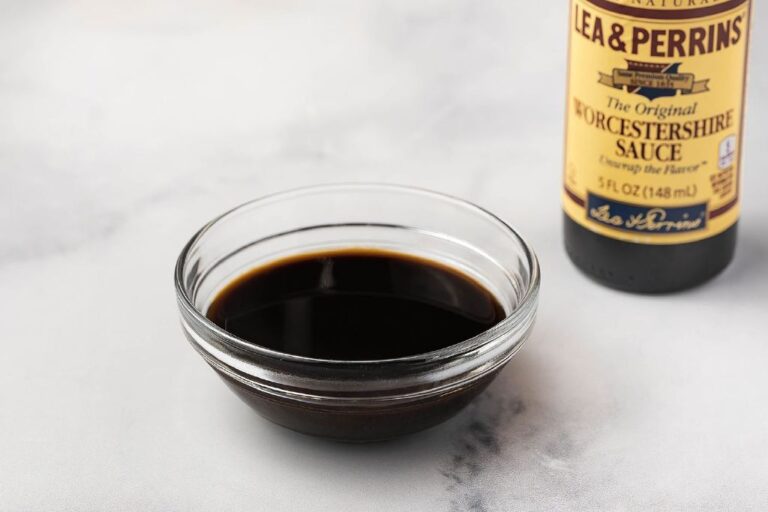Fish Sauce and Omega-3: What Every Health Enthusiast Should Know

Welcome to the world of fish sauce and omega-3, where culinary delights and nutritional power collide! If you’re a health enthusiast seeking to elevate your taste buds while nourishing your body, this article is tailor-made for you.
Fish sauce is revered in Southeast Asian cuisine for its umami, but did you know it also contains omega-3 fatty acids? These essential nutrients play a vital role in heart health, brain function, inflammation reduction, and even eye health.
In this tantalizing journey, we’ll dive deep into the realms of fish sauce, unraveling its secrets as a nutritional powerhouse. Learn how fermentation boosts its omega-3 content, making it a surprising source of these healthy fats. We’ll also explore the myriad benefits of incorporating omega-3 into your diet, from supporting a healthy heart to boosting brain power.
So put on your apron and prepare for a fish sauce-omega-3 culinary adventure. It’s time to take your taste buds and your health to new heights!
What is Fish Sauce?
Fish sauce is often hailed as the “secret ingredient” in Southeast Asian cuisine. It is a pungent, umami-rich sauce made from fermented fish and salt. Anchovies or other small fish are typically used in the production process.
The fish are layered with salt and left to ferment for several months, resulting in a potent and flavorful sauce. Fish sauce has a long history, dating back to ancient times.
While it may not be the star ingredient in a recipe, fish sauce is often used to enhance the flavors of soups, stir-fries, marinades, and dipping sauces. It plays an essential role in many Southeast Asian dishes, including Thai, Vietnamese, and Filipino cuisines.
Fish Sauce as a Source of Omega-3
When it comes to omega-3 intake, fish and seafood are often the go-to sources. Yet, fish sauce can also contribute to our omega-3 intake. While the exact omega-3 content of fish sauce may vary, it generally contains a notable amount of EPA and DHA.
Studies have demonstrated that the omega-3 in fish sauce has a good bioavailability, which means that our bodies can easily absorb and use it. Incorporating fish sauce into your meals can help increase your omega-3 intake. This is especially if you have dietary preferences or restrictions that limit your consumption of fish.
The fermentation process used to create fish sauce actually increases its omega-3 content. As the fish breaks down during fermentation, the omega-3 fatty acids are released and concentrated. This means that fish sauce can be a surprisingly potent source of these essential nutrients.
The Benefits of Omega-3
Omega-3 fatty acids have been linked to numerous health benefits. Let’s take a closer look at some of the reasons why incorporating omega-3 into your diet through fish sauce can be advantageous:
1. Heart Health
Omega-3 fatty acids have been shown to reduce the risk of heart disease. They help lower triglyceride levels, reduce blood pressure, and decrease the formation of blood clots. By including fish sauce in your meals, you can contribute to a heart-healthy diet and support cardiovascular well-being.
2. Brain Function
The brain is composed primarily of fat, and omega-3 fatty acids play a vital role in its structure and function. Omega-3s may boost memory, cognition, and prevent age-related cognitive decline, according to research. Adding fish sauce to your diet could be a flavorful way to boost brain health.
3. Inflammation Reduction
Chronic inflammation is associated with various health conditions, including arthritis, heart disease, and certain types of cancer. Omega-3 fatty acids have anti-inflammatory properties that can help reduce inflammation in the body. By incorporating fish sauce into your meals, you may contribute to the overall management of inflammation.
4. Eye Health
Omega-3s are beneficial for maintaining optimal eye health. They help prevent dry eyes, macular degeneration, and cataracts. Including fish sauce in your diet can provide a natural source of these essential nutrients to support your vision.
Recommended Daily Intake of Omega-3
There is no specific recommendation for how much fish sauce should be consumed to get the recommended daily intake of omega-3. The National Health Service (NHS) advises eating one portion of oily fish per week, which is around 450 mg of EPA and DHA combined.
According to Blakely, the average person would ideally consume between 250 and 500 milligrams of EPA and DHA combined per day. Just three ounces of cooked salmon provides around 2,000 milligrams of EPA and DHA combined
Using Fish Sauce in Your Recipes
Now that we know fish sauce’s nutritional benefits, let’s try some tasty recipes with it. The umami flavor of fish sauce pairs well with a variety of ingredients and can elevate the taste of your dishes. Here are a few ideas to get you started:
| Recipe | Description |
| Vietnamese Pho | Add a splash of fish sauce to your homemade pho broth |
| Thai Green Curry | Enhance the flavor of your curry with fish sauce |
| Stir-Fried Vegetables | Drizzle fish sauce over stir-fried vegetables |
| Dipping Sauce | Create a tangy and savory dipping sauce by combining fish sauce, lime juice, garlic, and chili. |
Another fantastic way to incorporate fish sauce is by using it as a marinade. Its robust flavor can infuse your meats, seafood, and even tofu with a delicious umami taste. Simply mix fish sauce with ingredients like garlic, ginger, and a touch of sugar for a flavorful marinade. It will take your grilled or roasted dishes to the next level.
Fish sauce can also be a secret ingredient in salad dressings and sauces. Combine it with lime juice, sesame oil, and a touch of honey for a tangy dressing that will make your salads pop. You can also create a delectable fish sauce-based sauce to drizzle over noodles, rice bowls, or grilled meats for an added burst of flavor.
When using fish sauce in your recipes, remember that it is a potent condiment, so a little goes a long way. Start with a small amount and adjust according to your taste preferences. It’s always better to add more gradually rather than overpower your dish with too much fish sauce.
Choosing the Right Fish Sauce

When it comes to purchasing fish sauce, it’s essential to choose a high-quality product. Look for fish sauce that is made from fermented fish and salt without any artificial additives or preservatives. Thai and Vietnamese fish sauce brands are known for their natural production and authentic flavors.
Additionally, check the label for omega-3 content, as some brands may have higher levels than others. Opt for fish sauce that specifies a higher omega-3 concentration, as this will ensure you’re getting the maximum nutritional benefits.
Conclusion
Fish sauce is more than just a flavor enhancer; it’s a nutritional powerhouse packed with omega-3 fatty acids. You can improve your heart, brain, inflammation, and eye health by adding fish sauce to your meals.
Use fish sauce as a marinade, dressing, or dipping sauce to take your taste buds on a delicious adventure. Remember to choose a high-quality fish sauce brand that emphasizes natural production methods and higher omega-3 content.
So the next time you want a burst of umami flavor and nutritional benefits, grab a bottle of fish sauce and start a culinary adventure that will nourish your body and taste buds.
FAQs
Can I get enough omega-3 by just consuming fish sauce?
Fish sauce can contribute to your omega-3 intake, but it’s important to note that it should not be the sole source of omega-3 in your diet. Incorporating a variety of omega-3-rich foods like fatty fish, flaxseeds, chia seeds, and walnuts will ensure you meet your recommended intake.
Is fish sauce suitable for individuals with seafood allergies?
No, fish sauce is not suitable for individuals with seafood allergies as it is made from fermented fish. It can trigger allergic reactions in sensitive individuals. It’s crucial to read ingredient labels and opt for alternative condiments that are free from fish or seafood.
How does fish sauce contribute to a healthy diet?
Fish sauce adds flavor to meals and provides protein, amino acids, and minerals. However, moderation is key due to its high sodium content.
Does fish sauce have any side effects?
Fish sauce, like other sodium-rich condiments, can cause high blood pressure and water retention. It’s important to consume fish sauce in moderation and balance it with a variety of other healthy ingredients.
Can fish sauce be used as a replacement for soy sauce?
Fish sauce and soy sauce have distinct flavors, so they cannot be directly substituted for each other. However, in certain recipes, you can experiment with using fish sauce as a flavor enhancer instead of soy sauce to add a different umami profile to your dishes. It’s best to adjust the quantities and taste as you go to achieve the desired flavor.
Is it possible to make homemade fish sauce?
Yes, it is possible to make homemade fish sauce, although it requires a significant amount of time and specific ingredients. The traditional method involves fermenting fish, salt, and water for several months. Due to its complexity and length, many people buy fish sauce or other condiments.






